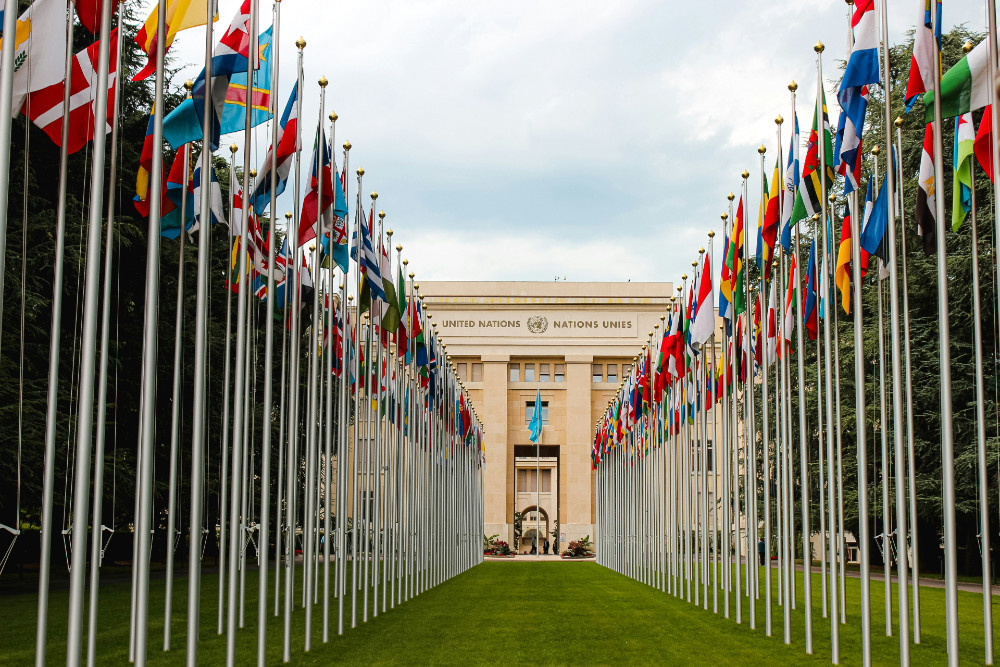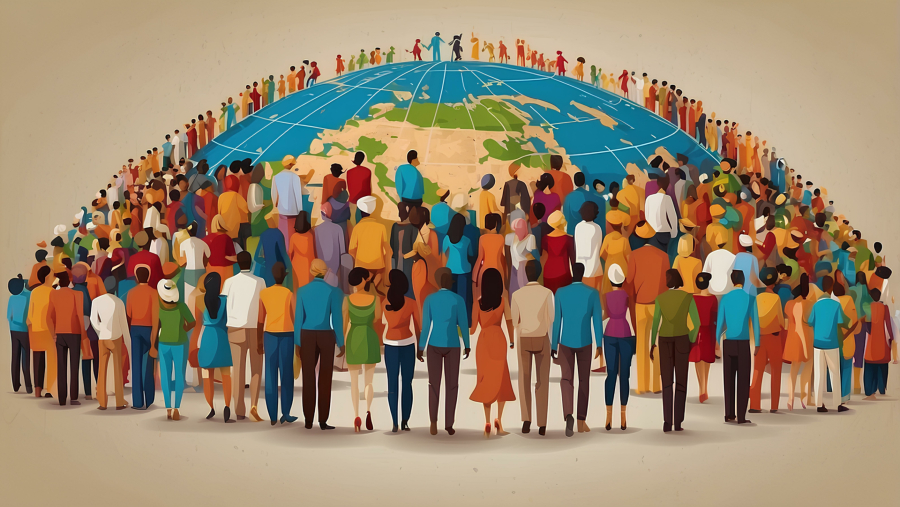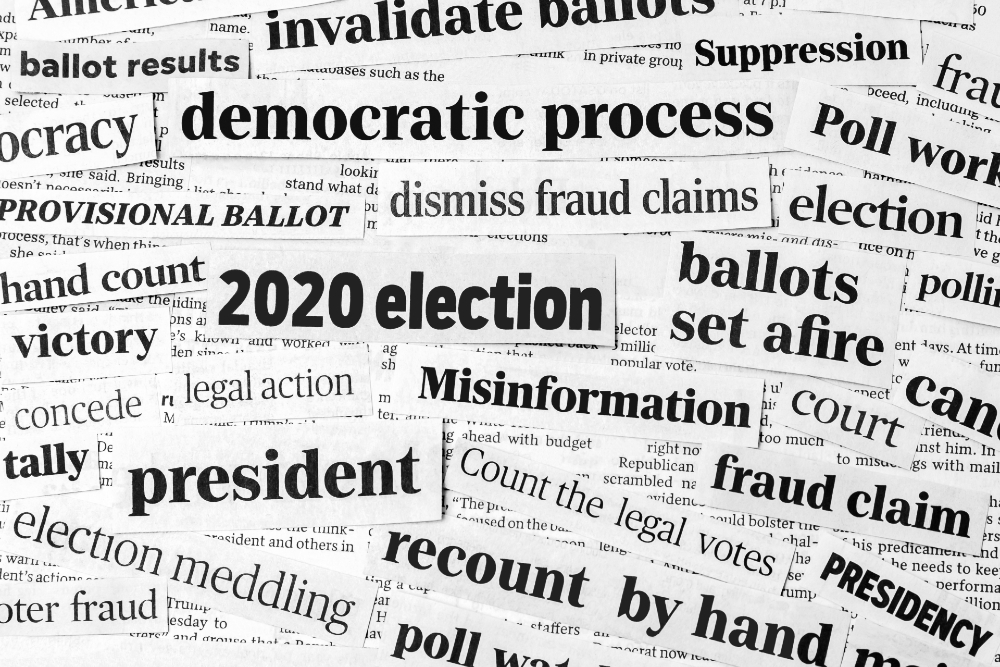More Than a Seat at the Table
By: Jennifer Ding LAW ’24

More Than a Seat at the Table – Meaningful Multistakeholder Engagement yet to be Seen at UN Cybercrime Treaty Negotiations
The Colonial Pipeline is one of the largest oil pipelines in the United States, spanning over 5,500 miles and supplying nearly half the fuel for the East Coast. On May 6, 2021, Eastern European hacker group DarkSide initiated a ransomware attack on the pipeline’s digital system, demanding 75 Bitcoin while holding the company’s data hostage. In response to the attack, Colonial temporarily halted all pipeline operations, causing jet fuel shortages for airlines, and leading to consumer panic buying and spiking gas prices. The Colonial Pipeline attack was not an isolated incident, ransomware attacks are rising in frequency and scope and have targeted critical infrastructure like healthcare and education systems.
Information and communication technologies (ICTs) stretch across political borders, connecting societies like never before, and can increase opportunities for social and economic benefits. The COVID-19 pandemic accelerated dependence on digital infrastructure in myriad ways, facilitating drastic changes in work, education, and industry patterns. While digital connectivity offers many opportunities for society, the Colonial Pipeline incident demonstrates the accompanying risks to commerce, social life, and digital infrastructure itself.
In light of these pressing transnational concerns, several international lawmaking processes are underway, under the auspices of multilateral institutions and unfolding in a complex geopolitical environment. Efforts to set out the definitions and contours of international law in cyberspace beg questions about who decides, and what perspectives should the drafters consider in elaborating such consequential international agreements. This current era of codification, in short, raises perennial questions about the adequacy, equity and inclusivity of multistakeholder engagement in international legal processes.
Temple University’s Institute for Law, Innovation & Technology (iLIT) has been monitoring developments in international law related to ICTs and cybersecurity. . We have focused on the human rights implications of international responses to cybersecurity threats. For example, ransomware attacks can do grave harm on many levels, but free reign to law enforcement to identify and respond to cybercrime threats would also pose great risks to human rights and freedoms. Beginning in February 2022, iLIT has been tracking the ongoing United Nations Ad Hoc Committee (AHC) process, a series of multilateral sessions and intersessional consultations designed to elaborate an international treaty addressing transnational cybercrime. Student researchers have documented and analyzed the process to develop a repository of Member State statements and proposed treaty language. In undertaking this work, iLIT researchers have identified several key gaps in accessibility and participation for non- state multistakeholders.
This post reflects our initial learning from studying and observing the AHC process. First, an overview of the creation of the current UN treaty; second, the role and importance of multistakeholders, such as civil society organizations, in this UN treaty negotiation; and third, identified gaps in multistakeholder participation and recommendations.
A Global Cybercrime Treaty and Human Rights
Accountability for transnational cybercrime has been a topic of international law for decades. The 2001 Budapest Convention is the first international treaty addressing cybercrime, setting out a framework for international cooperation, investigation, and harmonization of national laws. While a number of powerful states and multinational organizations are parties to the Budapest Convention, including the United States and the European Union, uneven adherence reflects geopolitical trends in the development and control of ICTs. Notably, Russia has not joined the Budapest Convention. Instead, Russia has pursued the negotiation of an international cybercrime treaty under the auspices of the United Nations. Despite opposition from countries like the US and from human rights groups, enough States voted to move forward with the proposed treaty. On December 27, 2019, the United Nations General Assembly adopted a resolution establishing the Ad Hoc Committee to Elaborate a Comprehensive International Convention on Countering the Use of Information and Communication Technologies for Criminal Purposes (hereinafter AHC). The AHC sits within the UN Office for Drugs and Crime (UNODC), whose mission is to contribute to global peace and security, human rights and development by making the world safer from drugs, crime, corruption, and terrorism.
Any treaty that covers the enumeration and prosecution of transnational crime has major implications for the protection and promotion of human rights. This has already been an area of intense debate both within the AHC negotiations and via external commentators. An early Russian draft, for instance, did not include important safeguards for protecting the human rights of persons accused of cybercrime for political reasons. In contrast, the Budapest Convention does contain such safeguards, allowing State parties to refuse legal assistance and extradition to prosecuting states in such circumstances, as a check on overreach of state power in violation of human rights.
On December 22, 2021, 134 civil society organizations, individual experts, and academics delivered a joint letter to H.E. Ms. Faouzia Boumaiza Mebarki, Chairperson of the AHC, advocating for “robust civil society participation throughout all stages of the development and drafting of a convention.” Signatories to the letter included human rights organizations such as Access Now, Human Rights Watch, Electronic Frontier Foundation, and Privacy International. These groups have argued that a new treaty is unnecessary and would risk eroding human rights protections. For example, rights groups lack consensus defining the term “cybercrime,” which could lead to treaty provisions and ultimately national laws that are overly broad in their scope and criminalize online expression, association, and assembly, and are used to prosecute human rights defenders, journalists, technologists, opposing politicians, lawyers, religious reformers, and artists.
The Importance and Challenges of Multistakeholder Treaty Negotiations
The UN has a long relationship with civil society organizations. The right of non-governmental organizations to access and participate in UN mechanisms was adopted in Article 71 of the UN Charter in 1945. While there have been many efforts to increase meaningful civil society participation in UN treaty building processes, doing so has been an uphill battle for multistakeholders. This AHC negotiation session is an opportunity for the UN to strengthen its relationship with civil society organizations through providing accessible and transparent participation, or it could be another example of engaging multistakeholder input in words but not action.
One important tool at the disposal of the AHC to ensure that such risks are considered seriously in this process is a formal multistakeholder approach to participation in the drafting and negotiation sessions. Multistakeholders represent diverse viewpoints, including the perspectives of those who would be most directly impacted by the contents of the treaty or hold specialized expertise that is vital to its negotiation, such as groups most likely to be criminalized and those that understand the technical capabilities of ICTs and computer networks. The private sector plays an important role in the field of ICTs but they are bound by the laws adopted by the states and accountable to their shareholders. Independent civil society organizations and academic institutions on the other hand are uniquely placed to conduct research and serve as watchdogs to ensure that cybercrime policies are fit for purpose; protect civil liberties, human rights, and innovation online; and enable ICTs to play their role as catalysts for socio-economic development.
Participating multistakeholders have consistently been asking for access and transparency throughout the process since regular sessions kicked off in early 2022. Requests have been made in written statements from Microsoft and Access Now, and there has been agreement at the intersessional consultations hosted by the Chairperson of the AHC that active and informative participation of multistakeholders was imperative to the convention.
There are several limitations of the ability of non-member state multistakeholder participation in the process. Multistakeholder participants were not present when States conducted the initial organizational sessions that determined the scope and modalities of non-State participation in the AHC process. This was an early red flag. Additionally, the formal modalities of participation only provide limited access for multistakeholders to meaningfully participate.
- Depending on the availability of the time, multistakeholders may be able to make oral statements at the end of discussions by Member States on each substantive agenda item
- The Chair of the AHC will consult and take input from multistakeholders during intersessional consultations, the written report of these sessions will be published in English, however translation into the other UN official languages will be subject to the availably of documentation entitlements of the Committee
- Member States have up to two hours before delivery to submit their statements in soft copy for translation into the six official UN languages
- Drafting and negotiating are to be the exclusive prerogative of the Member States
Various actors monitoring the process this year have identified a number of interrelated limitations on meaningful participation by multistakeholders in these negotiations.
iLIT’s Research Reveals Gaps in Transparency and Accessibility
While the process itself is in its first year and iLIT’s program is in a learning phase, our team has identified several practical hurdles to meaningful participation for non-state actors seeking to engage in the AHC process. These examples should be considered together with the already significant outlay of resources required to seek and secure approval to participate in the AHC process in the first place.
First, the timing and predictability of access to statements by States is unreliable, with statements circulated mere hours before sessions leaving little time for analysis, preparation, and response.
Second, statements are often only accessible in a single language. As of August 8, 2022, out of 239 statements that have been published on the multiple AHC websites, only one statement has been fully translated into all six official UN languages. At the minimum, the statements should be available in the official UN languages.
Third, it is not guaranteed that multi-stakeholders will be able to make their statements at these sessions. Time is only given to them if it is available. It is not built in and multi-stakeholders are designated to speak on substantive matters at intersessional consultations, where Member States are not required to attend. It takes time, money, and resources to be able to attend these sessions. The AHC should allow approved multistakeholders to make their statements on substantive agenda items at the formal sessions.
Fourth, while the COVID-19 pandemic presented an opportunity for expanding accessibility via an increase in ease and familiarity in virtual participation, instead we have seen that this is not the case. While there are options for remote participation in AHC sessions, it seems as if these are reactionary and are not built intentionally into the process, as there is a strong preference for in-person participation. The availability of remote participation is not confirmed until the modalities of each specific session are announced, and participating groups have no guarantee that future sessions will be held in a hybrid format. Additionally, while the web sessions are streamed live, the recordings are not consistently posted and the link to view the recordings that have been posted only redirects to the general UN Web TV site. The unpredictable format and strong preference for in-person participation seems like a step backward in time, reducing accessibility and the potential for meaningful contributions.
Our research confirms the concerns expressed by civil society organizations and other independent multistakeholders, as well as many States, that the final text of the treaty could undermine state obligations to protect human rights and fundamental freedoms. Participation in the drafting process should be accessible and transparent for multistakeholders to ensure that those rights are seriously considered and gain meaningful influence through open and robust debate. Access and participation are not magic bullets but can serve as a better foundation for building trust in this process. There are many steps the AHC can take immediately to facilitate stronger participation, beginning with addressing the gaps identified above.
iLIT is a university center based at Temple University’s Beasley School of Law that performs research at the intersection of technology and society. iLIT is currently participating in the AHC process as an academic stakeholder pursuant to paragraph 9 of General Assembly resolution 75/282.





